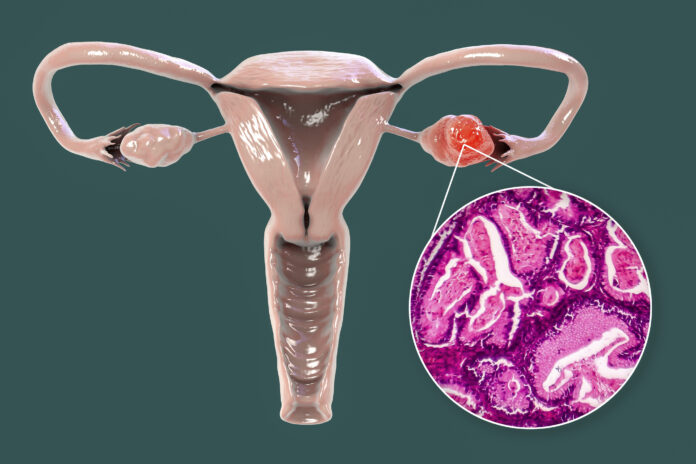A vegan diet includes no animal products, which means it contains no dietary cholesterol. However, various factors influence blood cholesterol levels, so vegans may still have high cholesterol.
However, some vegans may have higher cholesterol levels than expected. A range of variables can affect cholesterol, including genetic factors, physical activity levels, and diet quality.
This article explores the effects of a vegan diet on a person’s cholesterol levels.
A vegan diet excludes animal products such as meat, dairy, and eggs.
Some animal products contain saturated fat, which research
Therefore, people may assume that a vegan diet invariably decreases LDL cholesterol. However, the reality is more complex.
Dietary cholesterol does not directly influence blood cholesterol. Eating a diet containing lots of processed food can negatively affect cholesterol levels, regardless of whether or not those foods are vegan. Some vegan products are highly processed and contain large quantities of the following:
- sugar
- sodium
- trans fats
- artificial ingredients
Furthermore, certain plant-derived oils, such as coconut and palm, are naturally high in saturated fats. Including these oils in vegan diets can increase LDL cholesterol levels, especially if a person consumes them in significant amounts.
Learn more about vegan diets and cholesterol.
A person with a vegan diet may have high cholesterol for various reasons, including:
- Diet quality: If a person consumes a lot of fried and processed foods high in saturated and trans fats, their LDL cholesterol levels may increase. Some vegan desserts and cheeses are made with coconut oil, palm oil, or partially hydrogenated oils, which are all known to increase cholesterol.
- Refined carbohydrate intake: A diet high in refined carbohydrates and sugars can also lead to elevated cholesterol. Research suggests that an excessive intake of refined carbs and sugar negatively affects blood lipids and cardiometabolic health.
- Genetic factors: Some individuals have a genetic predisposition called familial hypercholesterolemia. This
affects how the body processes cholesterol, leading to high LDL cholesterol levels in the blood, regardless of dietary habits. - Physical inactivity: Even with a vegan diet, a sedentary lifestyle can negatively affect cholesterol levels. Regular exercise can help
increase high-density lipoprotein (HDL). Also known as “good” cholesterol, HDL aids in removing cholesterol from the bloodstream, thus promoting heart health. - Alcohol and smoking: Excessive alcohol intake can elevate a person’s triglyceride levels. Smoking reduces HDL levels and damages arterial walls, making them more susceptible to fatty deposits.
- Other underlying health conditions: Hypothyroidism and chronic kidney disease may disrupt the normal balance and processing of blood lipids.
Maintaining healthy cholesterol levels is crucial for cardiovascular health and overall well-being. While genetics can play a role in a person’s cholesterol levels, lifestyle choices have a significant effect.
By adopting certain preventive measures, individuals can influence their cholesterol levels positively and reduce the risk of related health complications.
Here are
- Eat a nutritious diet: Prioritize a diet rich in whole foods, including fruits, vegetables, whole grains, legumes, nuts, and seeds, and reduce consumption of processed foods high in saturated and trans fats, sugars, and sodium.
- Balance fat intake: Opt for healthy fats such as avocados, olive oil, and flaxseeds, and be cautious about consuming foods high in saturated fat, such as coconut and palm oil.
- Get regular physical activity: Engage in at least 150 minutes of moderate-intensity aerobic exercise or 75 minutes of vigorous-intensity exercise weekly. Include strength training exercises for all major muscle groups 2 or more days a week.
- Avoid tobacco and limit alcohol: Limit alcohol intake to moderate levels. This refers to up to one drink daily for females and two for males.
- Monitor cholesterol levels: Monitor cholesterol, blood pressure, and blood sugar regularly to catch potential problems early. This is particularly important for people with a family history of heart disease.
- Maintain a moderate weight: Focus on a balanced diet and regular exercise to maintain a moderate weight.
Treating and managing high cholesterol requires a multi-faceted approach that may encompass medical interventions and lifestyle modifications.
Initially, doctors may recommend lifestyle changes to manage cholesterol levels. These changes center around making balanced dietary choices, exercising regularly, and limiting alcohol intake.
If a person is overweight, their doctor may recommend strategies to lose weight. A weight loss of just 5–10% can increase HDL cholesterol.
Depending on cholesterol levels and other risk factors, doctors
Learn more about treatment for high cholesterol.
Cholesterol levels and heart health are important concerns for everyone, regardless of dietary preferences. This includes vegans.
Questions a person may wish to ask a doctor include the following:
- How can I ensure my diet provides all the necessary nutrients to support healthy cholesterol levels?
- Are there specific plant-based foods that can help lower LDL cholesterol?
- Are there any particular deficiencies a person with a vegan diet should watch out for that might affect cholesterol or heart health?
- How do plant-based sources of omega-3 fatty acids, such as flaxseeds and walnuts, compare with animal sources regarding heart health benefits?
- Are there vegan-friendly supplements or medications that can help manage cholesterol?
- How might processed vegan foods influence cholesterol levels and overall health?
- Can a vegan diet provide enough soluble fiber to benefit cholesterol levels, and which foods are the best sources?
- How often should a person get blood tests to monitor their cholesterol and their levels of nutrients of concern for vegans, such as vitamin B12, iron, and omega-3 fatty acids?
While vegan diets contain no dietary cholesterol, people who follow them can still develop high cholesterol.
To help maintain healthy cholesterol levels, people should aim to eat a balanced diet, exercise regularly, and avoid smoking or consuming excess alcohol.
Vegans can confidently manage their cholesterol levels through regular health screenings, informed dietary practices, and open dialogue with healthcare professionals.










